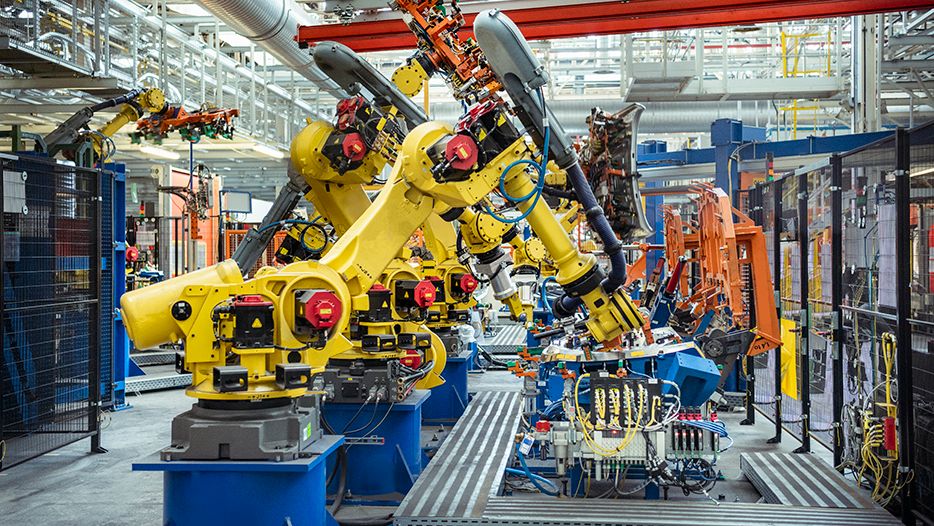Capital goods are vital to the global economy, providing the necessary equipment and machinery required to produce items and services across a variety of industries. In this article, we’ll look at the firms that operate in the capital goods sector, examine the distinctive features of these companies and evaluate the pros and cons that come with this sector.
What do capital goods jobs pay?
The range of salaries of capital-goods jobs is a bit different based on the factors that determine it, such as job position and experience, education level as well as the location and particular sector within the capital goods industry. The majority of capital goods jobs cover a broad range of roles, such as technicians, engineers project managers, sales representatives and many others.
Here’s a look at the possible salaries for a variety of commonly used capital goods job jobs:
Engineers: Capital goods engineers like mechanical engineers, and electrical engineers could make a salary that ranges between $70,000 and $120,000 per year, based on their expertise and their specialization.
Technicians: Technicians employed in the industry of capital goods including Quality control or maintenance techs typically earn between $40,000 to $70,000 a year dependent on their qualifications and work experience.
Sales representatives: Sales personnel engaged in the sale of capital goods may be paid a mix of commission and base salary. The total compensation package may differ widely, but can be as low as $50,000 and up to $100,000 annually, based on the performance of the sales rep as well as the area of territory in which they sell.
Project Managers: Project manager accountable for overseeing projects involving capital goods are paid salaries that range between $80,000 and $150,000 per year, based on the size and complexity of projects that they oversee.
Noteworthy Features of Capital Goods Companies:
Extensive Product Catalogs and Customization Options
Companies that deal in capital goods typically provide various products to meet the varied demands of their clients. They may offer machines tools, equipment and other components that are used in diverse industries like construction, manufacturing energy, transportation, and so on. The vast catalogs of products ensure that businesses will find the best solutions to meet their particular needs. Furthermore, the capital goods firms are aware of the significance of customization and can offer products tailored to meet the specific needs of their clients. This helps customers optimize their processes and increase efficiency and effectiveness.
Emphasis on Research and Development (R&D)
Research and Development (R&D) is an essential component that is integral to the capital good sector. Businesses invest a lot of money in R&D to create and invent innovative products, technologies and solutions. Through conducting studies, capital goods companies remain ahead of the game in anticipating trends in the industry and responding to emerging demands. R&D helps them improve the quality as well as the reliability and performance of their products. This leads to better customer satisfaction and competitive advantages. It also spurs technological advances like the automation of processes, AI and smart systems that aid in the overall development of the business.
Advanced Manufacturing Processes and Quality Control Measures
Capital goods firms strive to keep high standards throughout their manufacturing processes in order to provide goods of the highest quality. They make use of advanced manufacturing techniques which include the computer-aided design and production (CAD/CAM) systems robotics, robotics, as well as precise manufacturing. These techniques allow the production of high-quality and precise products which results in reliable and long-lasting capital products. Furthermore, capital goods firms employ strict quality control procedures throughout the production procedure to make sure that the products conform to industry standards and meet customer expectations. This includes strict tests, inspections, and compliance with the requirements of regulatory agencies to ensure that the final products are secure and reliable. They also ensure that they perform perfectly.
The Future of the Capital Goods Industry:
A new era for capital goods sector requires taking on industry 4.0 and digitalization to improve manufacturing processes and remain ahead of the curve. Sustainable manufacturing methods will play a significant role in addressing environmental issues and addressing the need for environmentally friendly solutions. Additionally, expanding into new markets and establishing global operations allows capital goods companies to capitalize on new opportunities for growth opportunities and expand their customers.
Embracing Industry 4.0 and Digitalization
The manufacturing industry for capital goods is set to take on the transformational potential of Industry 4.0 that refers to an integration of digital technology to manufacturing process. This encompasses technologies like technology like the Internet of Things (IoT) and artificial intelligence (AI) as well as big data analytics, as well as automation. Through the adoption of these technology, capital goods firms can boost their manufacturing capabilities and increase efficiency of production and enhance the quality of their products. Industry 4.0 allows real-time monitoring and predictive maintenance, which results in a reduction in downtime and an increase in efficiency of the equipment overall. The adoption of digitalization allows capital goods firms to remain in the game and keep up with the changing requirements of their customers in a more interconnected and technologically advanced.
Focus on Sustainable Manufacturing Practices
In light of the growing environmental concern capital goods firms are shifting their attention toward sustainable production methods. This includes reducing their energy use and reducing waste production and incorporating eco-friendly manufacturing processes and materials. Through incorporating environmentally friendly practices in their business operations capital goods businesses can help preserve the environment and satisfy the growing demands for environmentally friendly solutions. Sustainable manufacturing practices also offer cost savings by enhancing efficiency of resources as well as a boost to image of the brand since more customers are putting greater emphasis on green products and services.
Growing to Emerging Markets and Globalizing Operations
To take advantage of new growth opportunities Capital goods companies are expanding their operations into emerging markets, and are expanding their operations. Emerging markets, like those of Asia, Africa, and Latin America, offer significant opportunities for infrastructure development and industrial growth. Through the entry into these markets, capital goods companies are able to gain access to a growing demand for equipment, machinery and technology solutions. Globalizing operations allow companies to diversify their client base, decrease dependence on particular regions and gain access to new markets. The expansion could involve the establishment of manufacturing locations, sales offices and distribution networks across different countries, which allows companies to reach a broader public and to take advantage of new business opportunities.
Conclusion
The capital goods industry is a major driver of growth and development by offering the required machines and equipment to power various industries across the globe. Companies operating in this industry offer a vast variety of services, such as large catalogues of their products, an emphasis on R&D as well as advanced manufacturing techniques. Capital goods companies provide many benefits, including promoting industrial growth, creating employment and fostering technological innovation, they confront challenges due to volatility in markets, a high-initiative investment, environmental concerns and compliance with regulatory requirements. The industry is set to embrace sustainability, digitalization and global expansion to take advantage of the next opportunities. Knowing the features of companies as well as the advantages and disadvantages that exist in the capital good industry is vital for companies and investors who want to navigate through this exciting sector.
FAQ’s
The industry’s capital goods leaders include heavyweights such as “MachTech Solutions,” “TechWorks Industries,” and “EquipMaster Innovations.”
“EquipPro Solutions” offers an wide range of capital goods, whereas “MachTech Innovations” boasts an impressive collection of the most advanced machines.
Absolutely! “CustomEquip Solutions” specializes in custom-designed capital goods that guarantee that you get the best fit for your specific needs.
“EcoEquip Solutions” leads the group by promoting sustainable practices in their production processes, as well as delivering green capital products.
Read more at Catchy Hints




